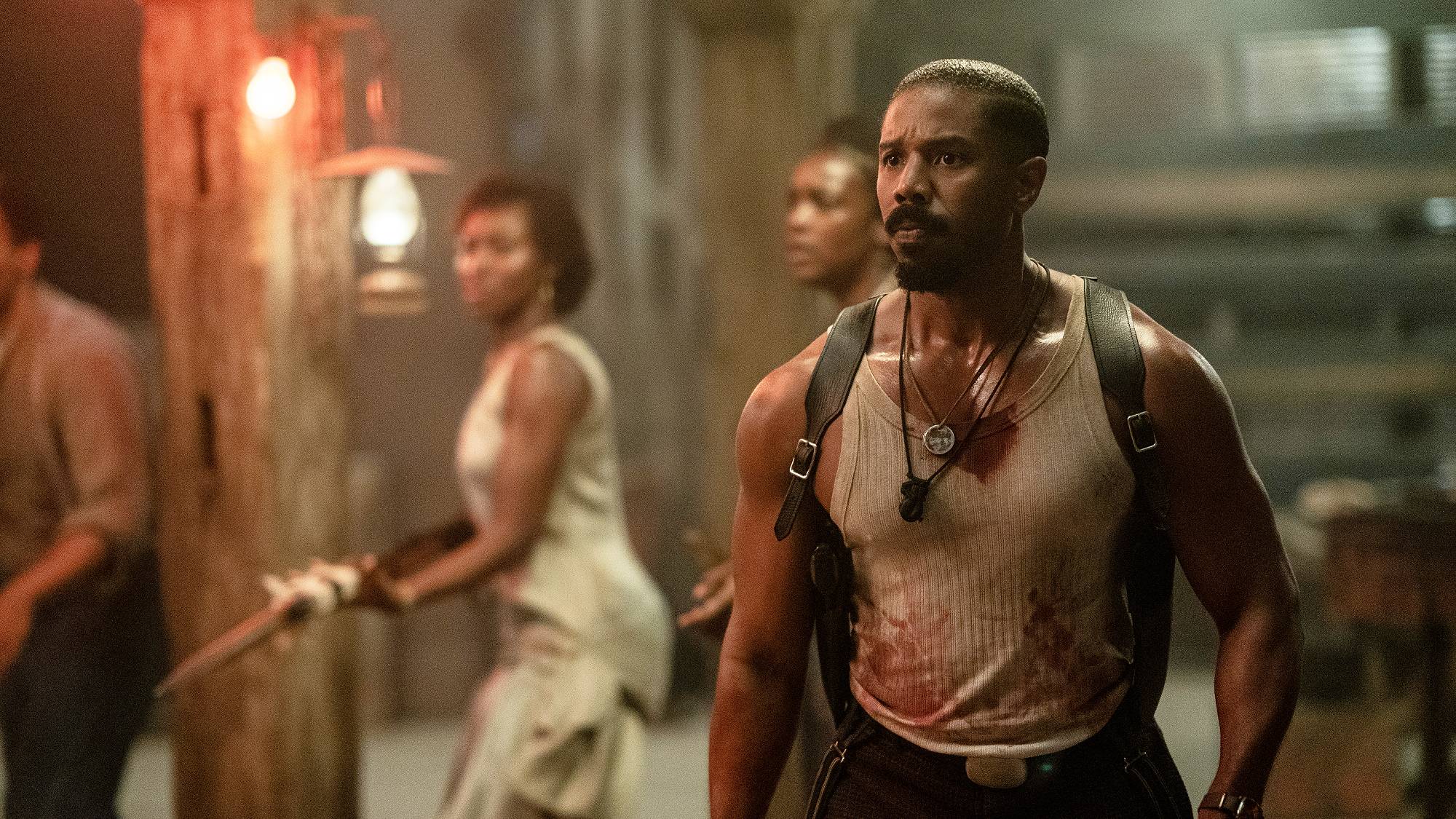Neon Genesis Evangelion Hits Netflix: 10 Things to Know
Here's everything you should know before dipping your toes in this notoriously enigmatic anime.
Neon Genesis Evangelion's reputation precedes it. The 26-episode series, which first aired in 1995, is about as divisive as anime gets. And it just hit Netflix.
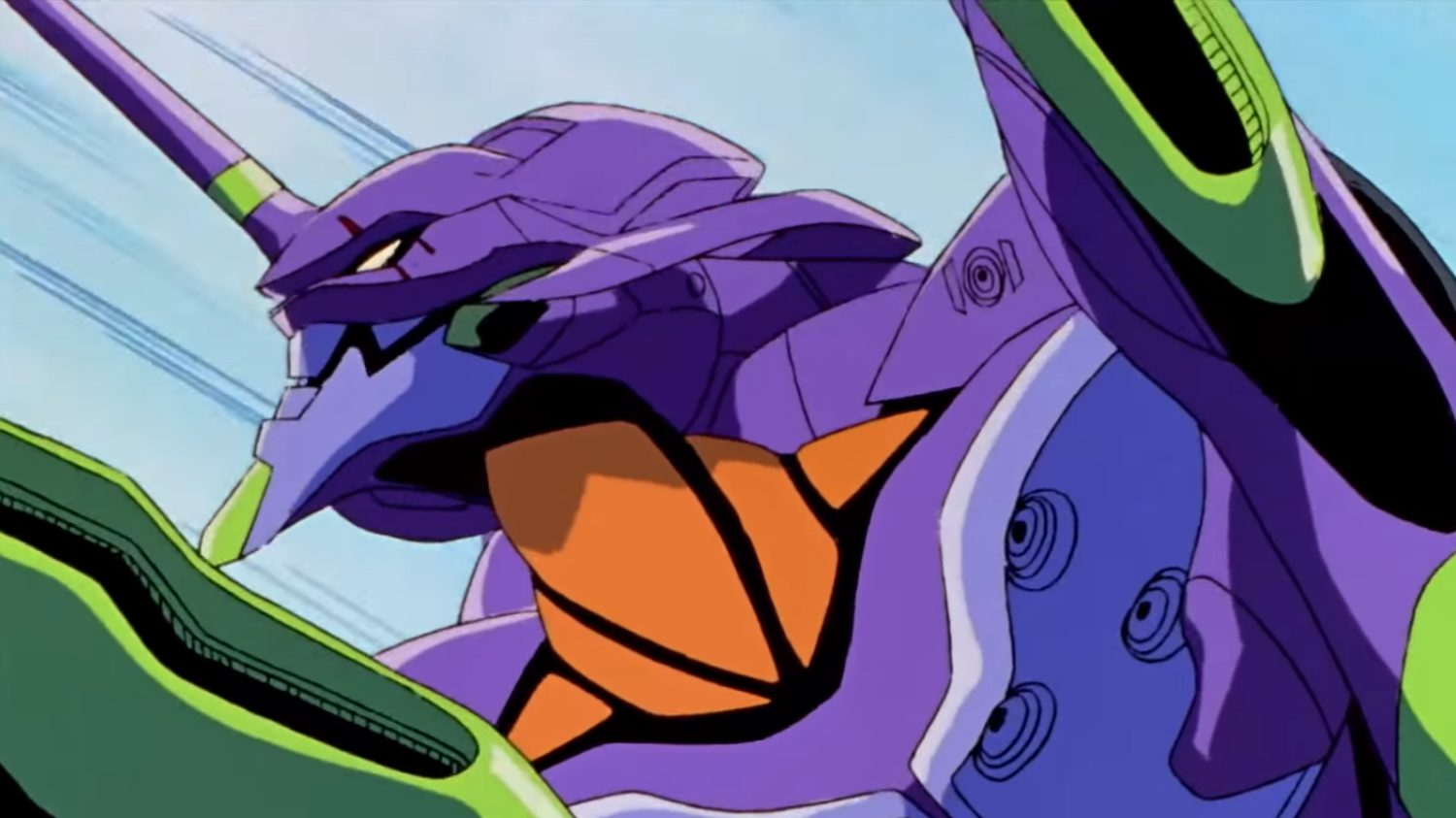
On the one hand, Evangelion is a scathing subversion of the mecha format that was done to death during the '80s and '90s — making it, in a sense, a suitable mecha anime for people who don't like the genre. On the other hand, this series is notoriously dense with lore that the show itself never adequately explains. In fact, the foundation of much of what we do, officially, for certain, know about the story comes from a booklet released alongside a movie, in limited numbers, in Japan.
That doesn't sound very friendly to newcomers then, does it? Even more infuriating, Evangelion has never been easy to find internationally. Until Netflix paid what was probably a hefty sum to license it, the anime was entirely missing from Western streaming services. You had to have one of the rare DVD box sets, which routinely go for hundreds of dollars, used, on eBay. And if you picked up the wrong collection, you might've missed out on the longer, director's cut episodes that lend a bit of useful context to the events at the end of the series.
Evangelion is impenetrable like that. It's not for everyone, and it's never the first anime I would advise anyone to watch. You might hate it — or you might find it to be a tortured commentary on the tragedy of interpersonal relationships, conveyed through the metaphor of giant robots, set to a mix of infectious J-pop, campy B-movie action tunes and even Bach. You've been warned.
Here's everything you need to know before immersing yourself in the world of Neon Genesis Evangelion.
What it's about
Set 15 years after a mysterious global disaster that wiped out half the Earth's population, the show primarily follows three teenagers tasked with piloting gigantic mecha, called Evangelion, to fight off otherworldly, equally huge monsters known as the Angels. There are more than a baker's dozen of these fearsome creatures, all vastly different in form and function and not really humanoid at all.
The Evangelion are developed, maintained and operated by a private military organization called Nerv, which happens to be run by the father of one of the aforementioned teenagers. The lead commander and the scientist at the helm of the project play an equally vital role in the events that unfold.
What it's really about
Without getting too in the weeds here, I like to describe Evangelion like this: Imagine an alien threat that, for whatever reason, requires 14-year-olds to jump inside massive alien-slaughtering machines, waging a war that will inevitably subject them to excruciating physical and mental anguish.
In most mecha anime, these teenagers are bred-for-battle supersoldiers, remarkably mature for their age. They understand their objective and mobilize unflinchingly for the good of humanity. Sure, they fear failure, and they're not above low moments, but you'd never doubt their will to carry on.
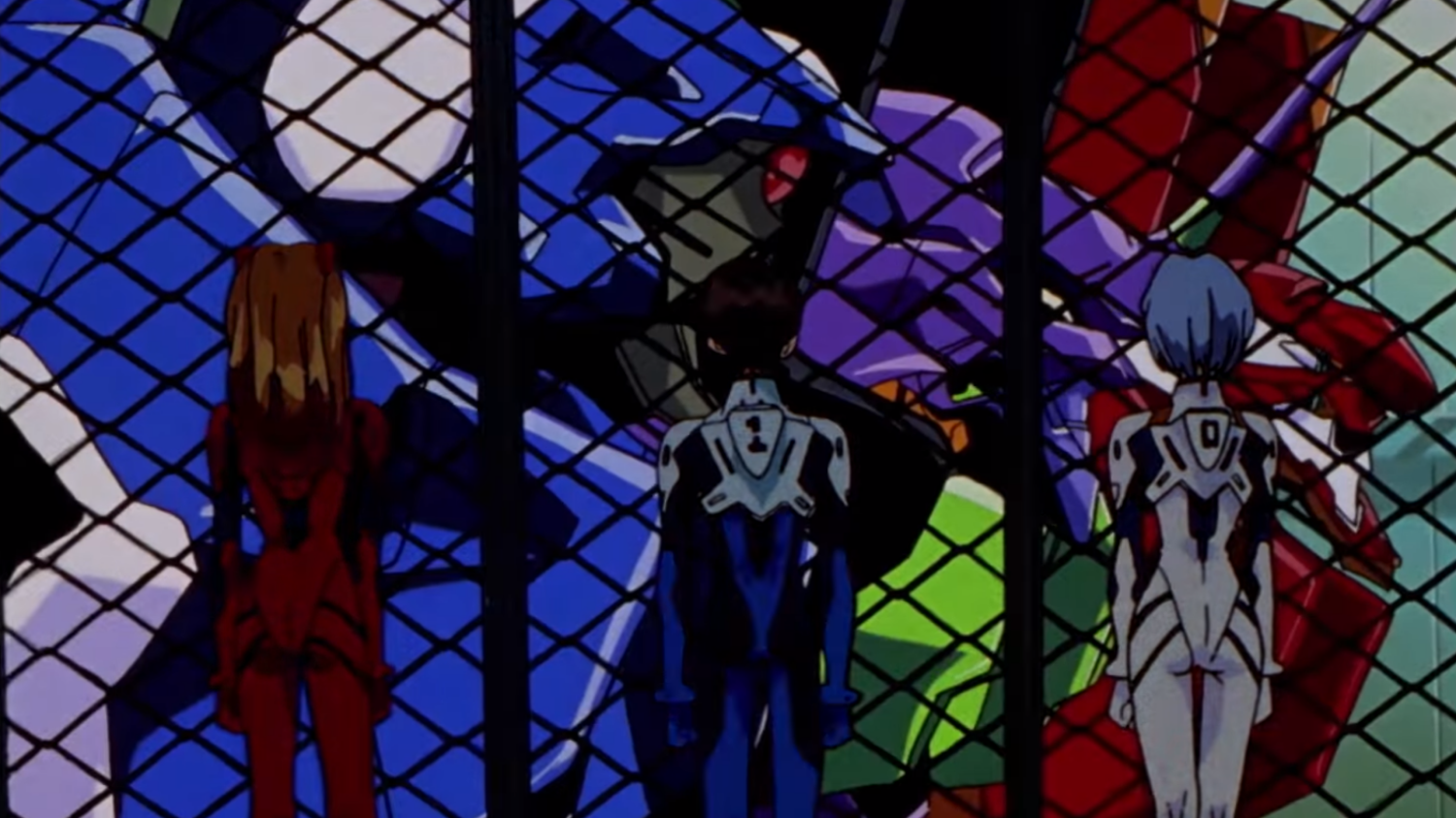
Now, let's replace that prototypical teenage hero with a real 14-year-old. How quickly would they be driven to insanity by the cosmic horror they're facing? How terribly would they cope with the weight of the human race resting on their shoulders? And how would this crisis aggravate their already-shaky pubescent disposition? That's Evangelion.
What's coming to Netflix?
Netflix's Evangelion roster includes the original 26-episode series, along with two movies: Neon Genesis Evangelion: Death(True)² and The End of Evangelion. Death(True)² isn't required viewing; the first hour is more or less a recap of the previous events with additional scenes, and the final half-hour is actually the start of End of Evangelion, which serves as the true finale. (Well, sort of, but we'll get back to that later.)
The 26-episode series on Netflix does include the director's cut versions of episodes 21 through 24, and many scenes from that cut are in Death(True)² as well. The supplementary content in the director's cut isn't mandatory for understanding the plot, though it's well worth watching to gain a fuller perspective — so it's great that Netflix included it here.
However, the biggest detail about Netflix's airing of Evangelion concerns the English dub. Netflix has replaced the original ADV Films-produced English voice track with a new one, featuring an entirely different cast. It's proven a controversial choice for those who prefer the old actors — though it's one not entirely without merit. Anime dubs in the '90s often weren't produced with the same kind of attention to detail or resources as today, and Evangelion's tends to fall in the love-it-or-hate-it camp.
Another, assuredly less welcome change concerns the series' iconic credits theme. Netflix has scrubbed the various covers of Fly Me to the Moon that used to punctuate every episode of Evangelion. Such a change isn't totally surprising, as licensed music is often the first casualty anytime media is redistributed. Nevertheless, it's an especially painful loss for longtime fans.
Now, back to End of Evangelion. This movie's continuity in the series' timeline of events has always been somewhat murky. Some regard it as a companion piece — a retelling, of sorts — of episodes 25 and 26, which formed the original two-part finale. Those two episodes were rushed to air, having been written and animated very quickly, and their events transpire entirely in the minds of the characters. For these reasons, they're mostly centered on storyboards, sketches and limited animation (oftentimes without backgrounds), whereas End of Evangelion is a lavishly-produced feature film.
Meanwhile, another group of fans argue that the events of End of Evangelion totally replace those of the film. It's up to you to decide. However, unlike with Death(True)², you shouldn't skip this one; it's as critical as the series itself.
It's depressing and occasionally disturbing
By this point, you've likely picked up on the fact that Evangelion is anything but a hopeful show. And this point isn't meant so much as a warning, but rather to give you an idea of what to expect going in.
If you welcome or perhaps can relate to the relentless, self-deprecating navel-gazing of unloved teenagers, chances are you'll like Evangelion. Nobody really puts down their baggage in this tale, and the resolution can be described as a happy one only if you're the type of person who can find a silver lining in deafening ambiguity. That's fitting, given that the director, Hideaki Anno, developed the premise while mired in a self-admitted four-year depression.
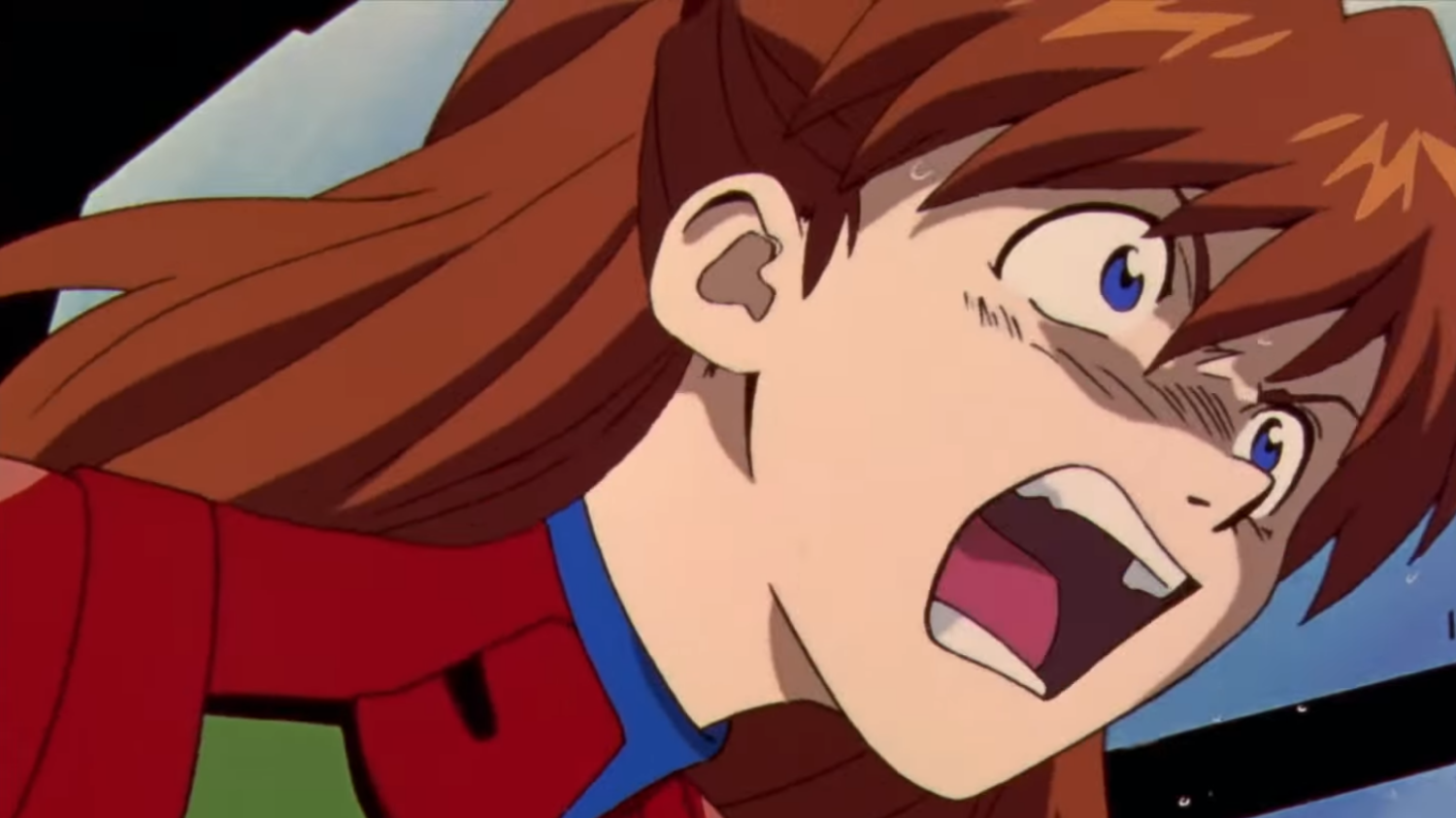
The show can also be unexpectedly ugly and gruesome. The Evangelion, which are enigmas in and of themselves, are cyborgs that bleed, scream in agony and have minds of their own. The Angels are troubling for their unfathomable form in that classically Lovecraftian way. The series really nails the whole cosmic horror thing, which is one of my favorite things about it.
It's got that pacing problem
Like far too many anime, Evangelion drags at times, particularly in the first half. The action gets going remarkably quickly; the protagonist is swept into the war and fights an Angel before the end of the first episode. But after that, things slow down considerably. One of the major characters isn't even introduced until Episode 8.
Most of the first 14 episodes can be described as monster-of-the-week stories, and at least one actually has a bit of humor to cut through all the melancholy. It's not that these episodes are bad; they actually feature a good helping of gorgeously animated fight scenes. But given that the physical battle isn't really what the show is about, watching them feels sort of like you're biding your time until everything finally goes pear-shaped.
The absurdity of asking someone to put up with 7 occasionally unsatisfying hours of television just to get to the good part is not lost on me. Not everyone will have the endurance for that, and even if you do, I only hope that you will have found the experience worthwhile in the end. My friend and colleague Henry T. Casey, whom I somehow convinced to watch Evangelion a few months back, described the second half of the series as the "real show," which arrives once the world-building is taken care of — and I'm inclined to agree.
Don't think too hard about all the religious stuff
One of Evangelion's most iconic idiosyncrasies is how it's drenched in Christian and Jewish imagery. Aside from the invading aliens being referred to as Angels, there's a recurring theme of crosses: cross-shaped explosions and jewelry, for example. Some of the Angels' names and other terminology are lifted from the Kabbalah, although the way these elements are used in the story have little, if any, relation to their actual significance in scripture.
As it turns out, Anno and his team weren't trying to make a profound religious statement with Evangelion; they were simply fascinated by the lore, so they saturated the show with it.
"There are a lot of giant robot shows in Japan, and we did want our story to have a religious theme to help distinguish us," assistant director Kazuya Tsurumaki said during an interview at a convention circa 2002.
"Because Christianity is an uncommon religion in Japan, we thought it would be mysterious," he said. "None of the staff who worked on Eva are Christians. There is no actual Christian meaning to the show. We just thought the visual symbols of Christianity looked cool. If we had known the show would get distributed in the U.S. and Europe, we might have rethought that choice."
Wikis are your friend
To that previous point, if you really want to understand Evangelion as well as possible — or you simply don't want to be confused — reading helps. The internet has been rife with debate over the show's every bit of minutiae for practically as long as discussion forums have existed. Chance encounters with some obnoxious fans notwithstanding, Evangelion breeds interpretation and discussion. And you can find information on any question you'd care to ask from the wiki over at EvaGeeks.
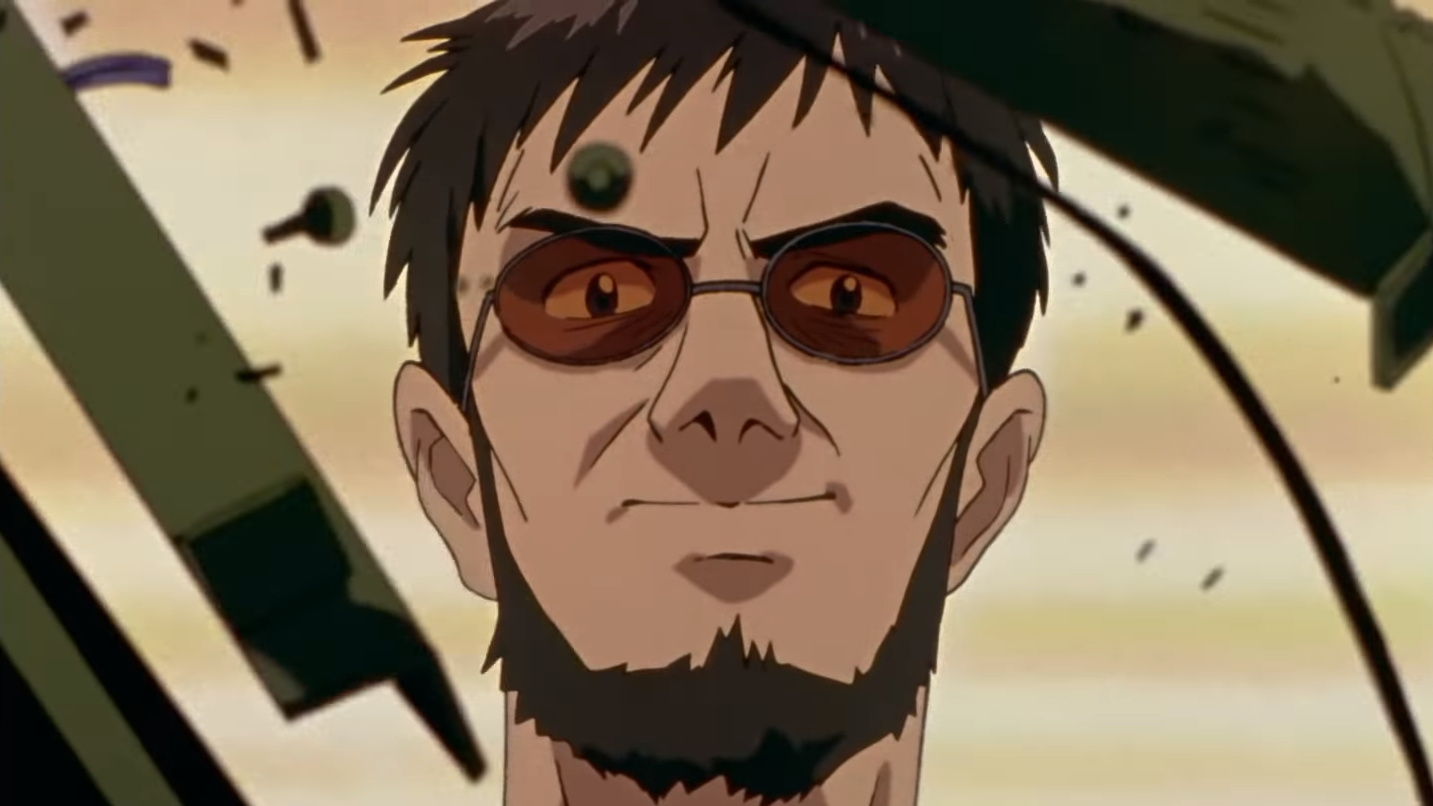
In fact, I arrived at Evangelion pretty much backward. After reading a few articles about the show last year, I was intrigued. I scoured EvaGeeks, stopping every other paragraph to branch off and read about yet another esoteric term that sounded interesting to me. I spoiled the plot for myself; though the thing about Evangelion is it's so dense, you can read about it as an outsider from a synopsis view and still not really ruin it, because everything sounds like gibberish. All of that only heightened my enthusiasm. And then, finally, I watched it.
I obviously wouldn't recommend everyone get into Evangelion like this; it surely isn't the way the creators intended. However, I can say without a shadow of a doubt that the significance of key events would have totally flown over my head if I hadn't gathered some background knowledge first.
Watching with subtitles is probably necessary
A small but critical recommendation: because Evangelion throws a textbook of words at you almost immediately without bothering to explain any of them (AT fields! S² engines! The spear of Longinus! Sync rates!), subtitles definitely help. You might do more reading than watching, though that kind of comes with the territory. A whole vocabulary accompanies the Evangelion universe, and written out, it's a little easier to digest.
What about those Rebuild films?
There's a whole other continuity of Evangelion that isn't bound for Netflix. Called Rebuild of Evangelion, it includes four feature-length films that effectively reboot the series. The tetralogy started in 2007, with Evangelion 1.0. Sequels 2.0 and 3.0 followed in 2011 and 2016, respectively. The conclusion, 3.0 + 1.0 (yes, you read that correctly), is slated for 2020.
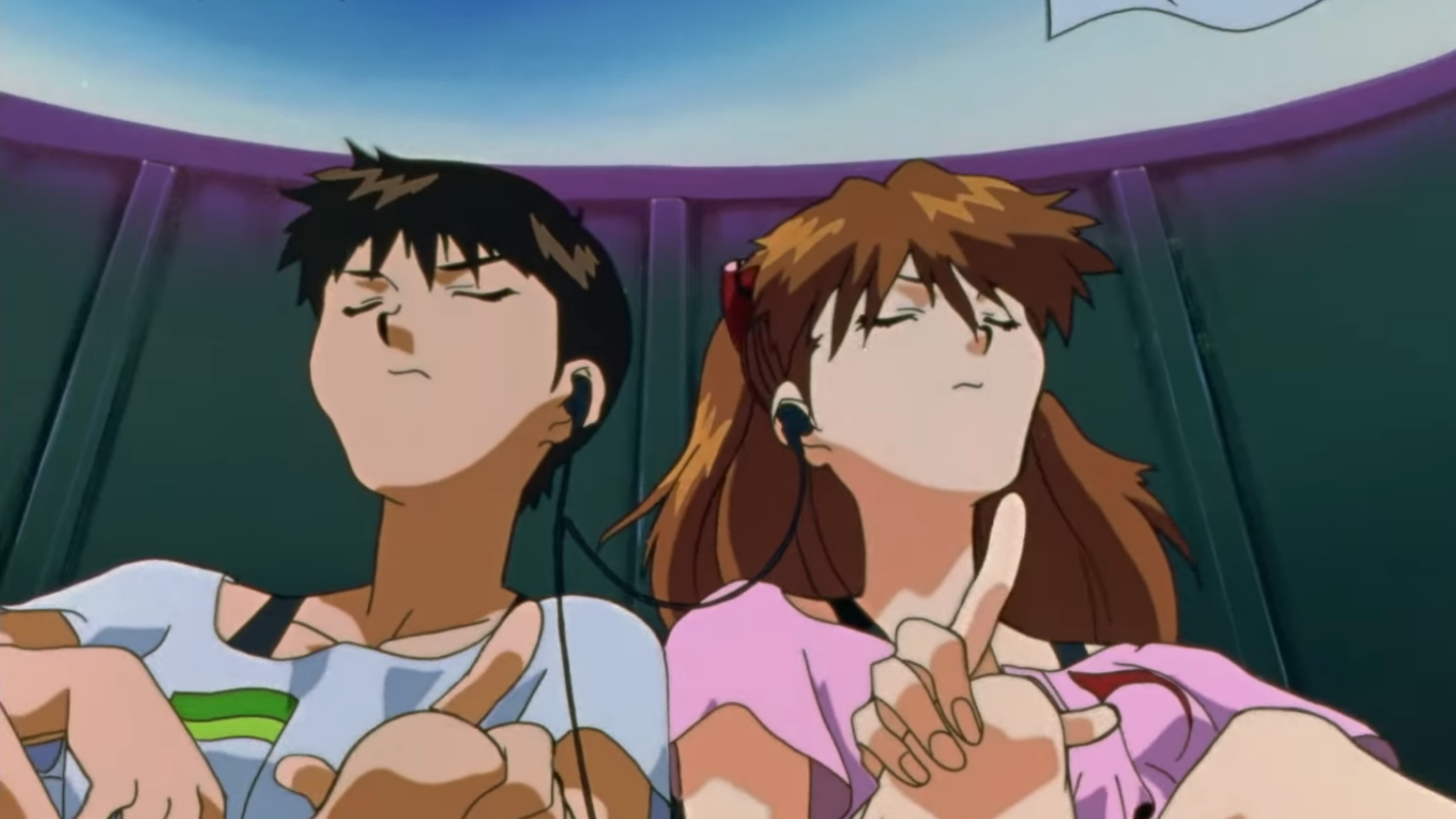
These movies are entirely separate from the initial series and End of Evangelion. The first Rebuild film practically retells the events of the first several episodes of the TV show, beat for beat, with a few changes to dialogue. At that point, it would seem that Rebuild functions as a tighter, more streamlined spin on the anime, but then 2.0 deviates by introducing a new major character. And 3.0 doesn't resemble the original plot at all.
What should you watch afterward?
If you're hungry for more Evangelion after exhausting Netflix's archive, you'll naturally want to seek out the Rebuild series. Although the new story has proven contentious among longtime fans, the Rebuild entries' vastly superior animation (owing to the newer films' bigger budgets) and punched-up voice acting make them worthwhile watches.
Alternatively, rather than springing for another anime, I'd suggest tracking down Shin Godzilla, the most recent Japanese Godzilla movie, which released in 2016. Anno and fellow Evangelion creator Shinji Higuchi actually directed this film, and perhaps unsurprisingly, it hits many of the same touch points as the mecha anime. Some of Godzilla's transformations are truly Angel-like in their weirdness, and much like in Evangelion, Anno uses the kaiju calamity as a way of skewering the futility of bureaucracy and government. In fact, one of Evangelion's most memorable songs, "Decisive Battle," appears prominently at multiple points in Shin Godzilla.
Sign up to get the BEST of Tom's Guide direct to your inbox.
Get instant access to breaking news, the hottest reviews, great deals and helpful tips.
Adam Ismail is a staff writer at Jalopnik and previously worked on Tom's Guide covering smartphones, car tech and gaming. His love for all things mobile began with the original Motorola Droid; since then he’s owned a variety of Android and iOS-powered handsets, refusing to stay loyal to one platform. His work has also appeared on Digital Trends and GTPlanet. When he’s not fiddling with the latest devices, he’s at an indie pop show, recording a podcast or playing Sega Dreamcast.
